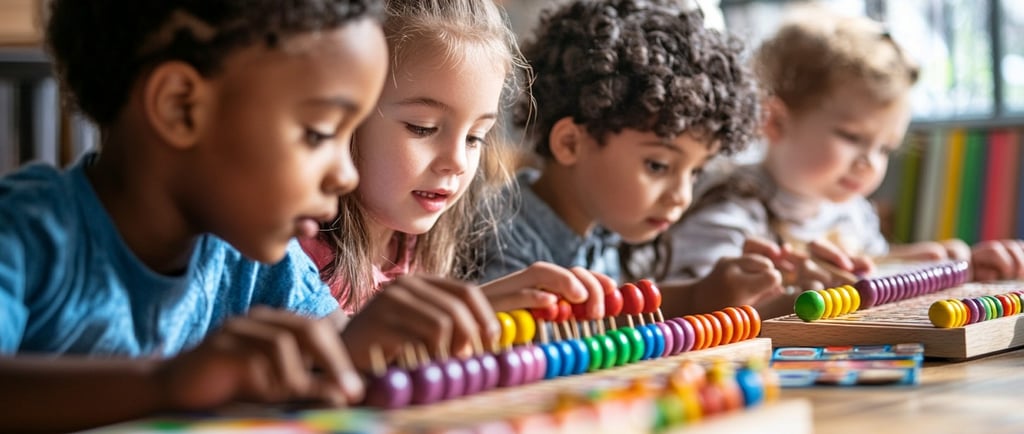Why Early Math Concepts Matter for Young Children
Discover why introducing math early sets the stage for lifelong learning and confidence—read our latest blog for simple, playful tips to nurture young children’s math skills every day.
Ryan Toor
8/6/20251 min read


Many parents and teachers might think math is something best learned once children start school, but introducing math concepts early is incredibly important for a child’s future learning and confidence.
The Value of Early Math
Cognitive Growth:
Playing with numbers, shapes, and patterns helps young minds develop logical thinking, problem-solving ability, and pattern recognition. These skills lay the groundwork for all subjects.School Readiness:
Research shows that strong early math skills are a better predictor of later academic success, even more than early reading. Kids familiar with numbers and patterns do better in school—not just in math but across subjects.Everyday Relevance:
Math is everywhere. Sharing toys, measuring ingredients, identifying shapes, or noticing patterns in daily life all foster math learning, making the subject relevant and practical.Building Confidence:
When math is introduced through play and everyday moments, children develop a positive attitude. They see themselves as “math people,” boosting their confidence to tackle challenges.
Encouraging Early Math Learning
Playful Exploration: Use games, blocks, and sorting activities to highlight numbers, shapes, and sizes.
Math in Conversations: Ask questions like “How many?” or “Which is bigger?” during routine activities.
Incorporate into Daily Life: Count steps, compare lengths, or divide snacks to make math part of the routine.
Read Books with Math Themes: Storybooks about counting or shapes make learning fun.
Key Math Concepts:
Counting and Number Sense
Shapes and Spatial Awareness
Measurement (big/small, heavy/light)
Patterns and Sorting
Start Early!
Fostering math skills in young children doesn’t require special materials. With curiosity and daily practice, parents and teachers can help kids develop strong math foundations for lifelong learning.
